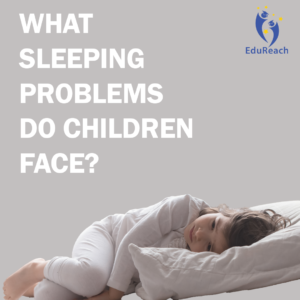What sleeping problems do children face? Do children suffer from insomnia?
What are the common sleeping problems among children?
– Insomnia
– Bedtime Fears
– Sleepwalking
Here are some understanding on children sleeping problems:
– Some children are not tired at their specific bedtime timing.
– Some children have trouble falling asleep without a company.
– Some children might wake up frequently in the middle of the night leading to them not being able to sleep afterwards.
Try researching on how much sleep do children need. Here is some information:
– Children aged 3 to 5 years old: 10-13 hours (including naps)
– Children aged 6 to 12 years old: 9-12 hours
There are some signs that you can see if your children are not getting enough sleep which can also link to ADHD such as:
– Often cranky
– Spaces out a lot
– Have trouble concentrating
What is insomnia?
Insomnia is a common sleep disorder that can make it hard to fall asleep, hard to stay asleep or waking up in the middle of night and not being able to sleep back.
Do you know that insomnia is the biggest sleep issues among kids?
So what causes insomnia in children?
Many children’s problems falling and staying asleep are caused by their daytime behaviours or how they spend their time before bed.
For example, eating too much sweet food during the day or watching TV before bedtime could cause your child’s sleep to be disrupted.
Stress can be one of the common reasons on children sleeping problems cause from school like struggling to keep up in class, having problems with their friends or even being bullied or stress from home like from their parents or no quiet environment to study.
Here are some examples how to deal with insomnia in children:
- Keep the same sleep schedule, even on weekends.
– This will keep their sleeping schedule consistently & make it easy for them to wake up and fall asleep.
- Prevent your child from going to be too hungry or too full.
– Giving them light snacks before bed is a good idea compared to giving them a whole full meal as that will keep them awake instead.
- Set limits with electronics.
– Ask them to give the electronic devices back one hour before bedtime & best is to keep them out of their sight or outside of their rooms when they are asleep.
Resources:
https://www.helpguide.org/articles/sleep/childhood-insomnia-and-sleep-problems.htm#


